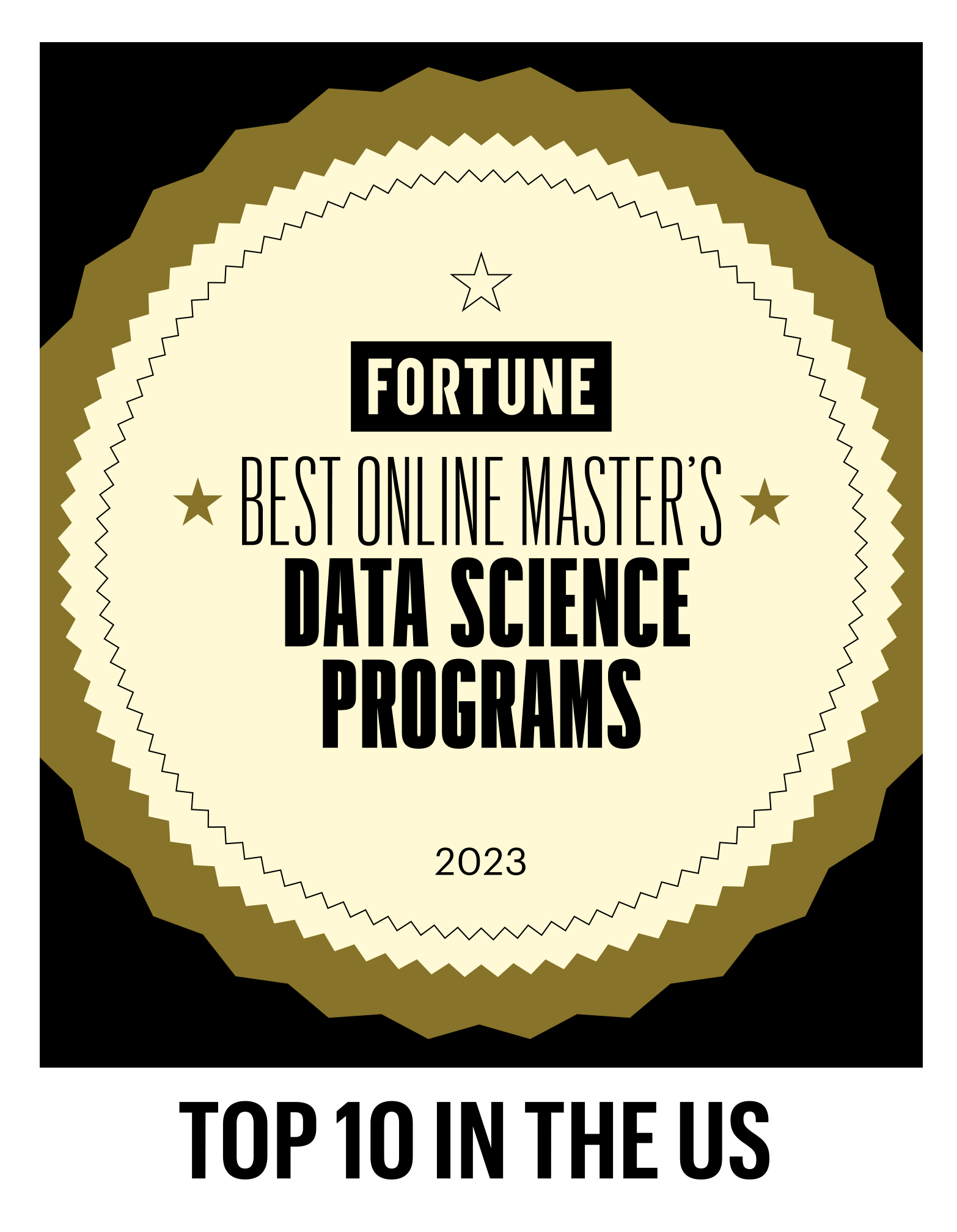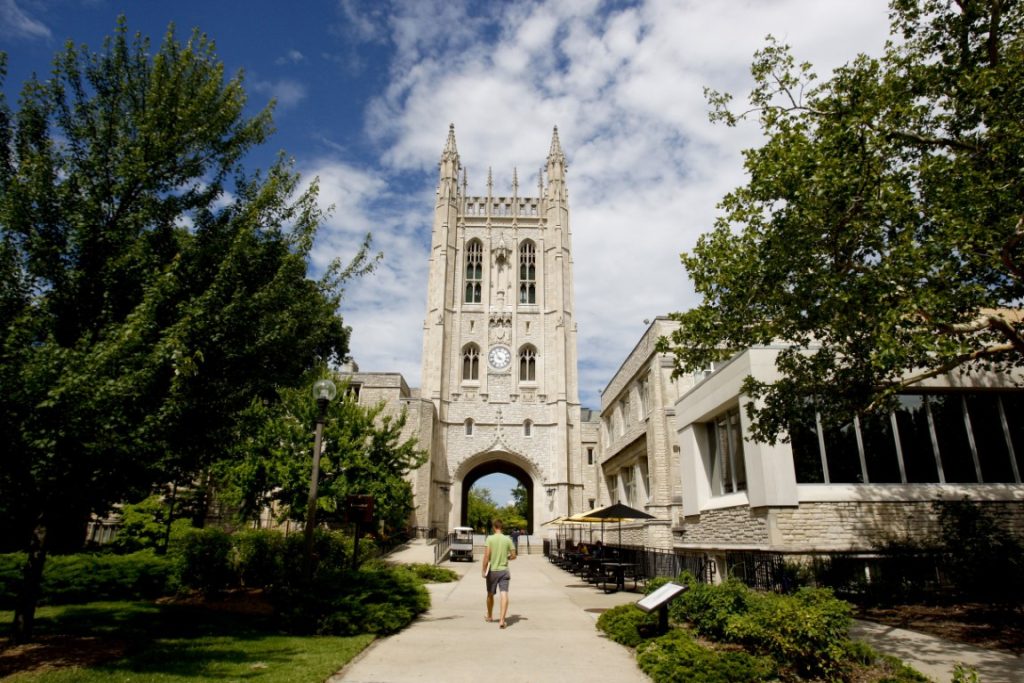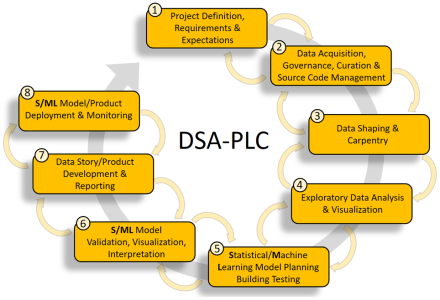The DSA is designed with an in-depth, technically-rigorous core curriculum followed by domain-specialized emphasis area courses.
Advanced Big Data and Analytics tools and techniques are used throughout the program coursework. Courses are delivered online or on campus. Additionally, students spend an optional one week each spring on campus with faculty and industry leaders during Data Science Week.

Program Requirements
Students will work closely with faculty mentors, gain experience through solving real-word Big Data issues, explore concepts targeted to their emphasis area, and more.
Required Credits
30 Hours
- 16 Credit Hours of Data Science Core Curriculum
- 9 Credit Hours of Emphasis Area courses
- 2 Credit Hour Case Study
- 3 Credit Hour Capstone (OR Thesis Research for on-campus students for 6 credits instead of Case Study & Capstone)


Emphasis Courses and Capstone
Emphasis courses represent the final stage in the further refinement of learning with domain-specific data and challenges. Interdisciplinary faculty from other MU colleges and schools help lead domain-specific learning through emphasis area courses.
The capstone project teams up students with faculty & members of industry for hands-on experience with large data sets and the latest technology and techniques.
The thesis research class is for on-campus students only and gives an opportunity to work on an independent research topic under a faculty advisor approved by the department.
Data Science as a Collaborative Lifecycle
We teach data science as a collaborative lifecycle, where data and processes have provenance from the raw data stage through to the resulting business intelligence products.

A data lifecycle starting with data curation, exploratory data analysis, statistical and machine learning modeling and refinements, and decision product production is used to tell the story of the data.
Two key philosophies drive this:
- Data scientists must be able to tell the story of data, including walking stakeholders backward from the final product, all the way to the beginning of the source data; including discussing the implications of all assumptions and transformations and decisions made along the way.
- Data scientists will be working increasingly in interdisciplinary teams, potentially distributed, where collaboration of ideas and exploration and processes are essential. Version control systems are central within our curriculum, with students using Git to fetch new modules and submit their completed work.
Developing Soft Skills
Our training focuses not just on technical skills but also on the softer side of data science – communication and teamwork. We organize our program into cohorts, creating a sense of community and teamwork among students.
Our students come from diverse backgrounds, bringing different experiences and industry knowledge. This diversity leads to interesting discussions and varied perspectives. We aim to improve students’ understanding of technology through cooperative, team-oriented learning.
To boost communication and collaboration skills, students regularly engage in weekly group activities. These tasks are designed to help them work together on technical coursework and subject matter, fostering better communication and teamwork.
“Being able to be a part of a cohort where everyone is working together on the same classes in union has been really invaluable in terms of having a learning community together to be able to be on chat with each other and talk about the classes we’re in.”
Travis Magaluk
DSA Class of ’24
MU Data Science programs are STEM-OPT eligible under CIP Code 110199.
To qualify for OPT, students must be in the US on an F-1 visa in order to apply for OPT/STEM OPT. If a student is participating in the online program outside of the US, they would not be eligible to apply for OPT.